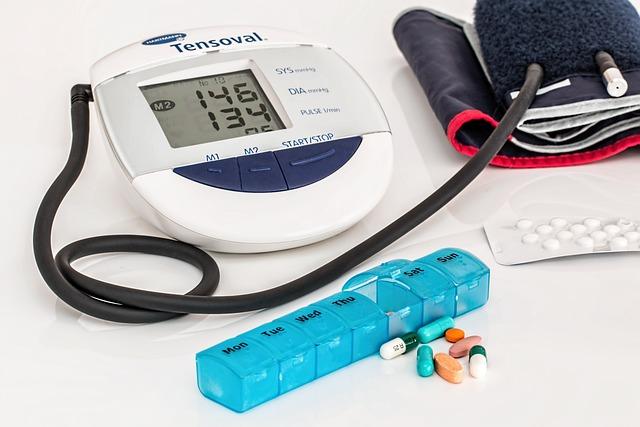In the intricate world of health and wellness, heart disease stands as a formidable adversary, often cloaked in layers of misconception and myth. These myths, much like whispered secrets passed from one generation to the next, have woven themselves into the fabric of our understanding, shaping perceptions and sometimes misguiding decisions. As we embark on a journey to unravel these tales, our aim is to illuminate the truths hidden beneath the surface. Join us as we debunk the common myths about heart disease, separating fact from fiction, and empowering you with knowledge that beats with clarity and truth.
Understanding the Real Causes of Heart Disease
While it’s easy to point fingers at cholesterol as the main culprit, the reality of heart disease is far more nuanced. Inflammation is emerging as a key player, often overshadowing the traditionally emphasized risk factors. This process can damage the inner layers of the arteries, paving the way for plaque buildup and increasing the risk of heart attacks. Understanding the complex interplay between inflammation and heart health is essential for effective prevention strategies.
- Myth: Only older adults are at risk.
- Reality: Heart disease can affect people of all ages, influenced by lifestyle choices, genetics, and environmental factors.
- Myth: A low-fat diet is the best way to prevent it.
- Reality: It’s the type of fat that matters; focus on reducing trans fats and incorporating healthy fats like those found in fish and nuts.
- Myth: Exercise alone can prevent heart disease.
- Reality: While physical activity is crucial, it’s part of a broader lifestyle approach that includes diet, stress management, and regular health screenings.

The Role of Diet and Exercise: Separating Fact from Fiction
When it comes to heart health, the interplay between diet and exercise is often surrounded by misconceptions. Let’s clarify some common misunderstandings:
- Myth: You can eat whatever you want if you exercise enough. While regular physical activity is crucial for maintaining a healthy heart, it doesn’t give a free pass to indulge in unhealthy foods. A balanced diet is just as important, as it provides the necessary nutrients to support your cardiovascular system.
- Myth: Cardio is the only exercise that matters for heart health. Although cardiovascular exercises like running and cycling are excellent for your heart, incorporating strength training and flexibility exercises can offer additional benefits. Building muscle helps improve overall metabolism and supports heart function.
- Myth: Low-fat diets are the best for preventing heart disease. The quality of fat is more important than the quantity. Incorporating healthy fats, such as those found in avocados, nuts, and olive oil, can actually be beneficial for heart health, as they help reduce bad cholesterol levels.
Understanding these nuances is essential for creating a heart-healthy lifestyle that is both sustainable and effective.

Cholesterol Myths and What You Really Need to Know
When it comes to cholesterol, the sea of misinformation can be overwhelming. Let’s clear the air with some common misconceptions and the facts you truly need. One prevailing myth is that all cholesterol is bad. In reality, cholesterol is essential for building cells and producing certain hormones. It’s the balance between good (HDL) and bad (LDL) cholesterol that matters. While LDL can contribute to plaque buildup in arteries, HDL helps remove cholesterol from the bloodstream. Aiming for a higher HDL level can be beneficial for your heart health.
- Myth: Eating eggs raises your cholesterol levels.
- Truth: Recent studies suggest that for most people, dietary cholesterol found in eggs does not significantly impact blood cholesterol levels. It’s more about the overall dietary pattern.
- Myth: Only overweight individuals need to worry about cholesterol.
- Truth: High cholesterol can affect anyone, regardless of weight. Genetics, lifestyle, and diet all play crucial roles.
Understanding the nuances of cholesterol is key to maintaining heart health. It’s not about eliminating it completely but managing it wisely through a balanced diet and regular check-ups.

Practical Steps for a Heart-Healthy Lifestyle
Adopting a lifestyle that supports cardiovascular health doesn’t have to be daunting. Here are some actionable steps to help you get started:
- Prioritize a Balanced Diet: Focus on incorporating a variety of fruits, vegetables, whole grains, and lean proteins into your meals. Limit the intake of processed foods, excessive salt, and sugars to maintain a healthy heart.
- Stay Active: Aim for at least 150 minutes of moderate aerobic activity each week. Whether it’s brisk walking, cycling, or swimming, find an activity you enjoy to make it a regular part of your routine.
- Manage Stress: Chronic stress can negatively impact heart health. Practice relaxation techniques such as meditation, yoga, or deep breathing exercises to keep stress levels in check.
- Get Regular Check-Ups: Regular health screenings can help catch potential issues early. Keep track of your blood pressure, cholesterol levels, and other key health indicators with routine visits to your healthcare provider.
By integrating these simple habits into your daily life, you can significantly reduce the risk of heart disease and improve overall well-being.








